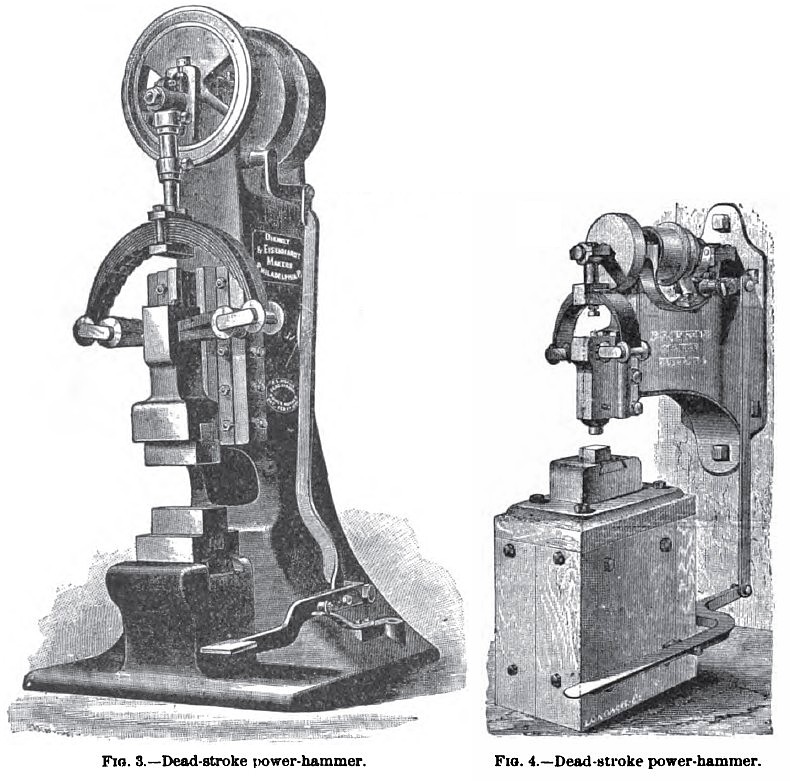|
Title: |
1895 Article-Dienelt & Eisenhardt, Dead-Stroke Power Hammer |
|
Source: |
Modern Mechanism 1895 pgs 416-417 |
|
Insert Date: |
6/16/2011 9:17:32 PM |
|
Fig. 3 shows a dead-stroke power-hammer, made by Dienelt & Eisenhardt, of Philadelphia. The ram, or striking part of the hammer, is suspended on an elastic or flexible belt (generally of leather), attached to the extreme points of a semicircular steel spring. The upper part of the steel spring is connected by a rod with a crank-pin. which, being set in motion by belting, gives the reciprocating movement necessary to raise or lower the ram, in its guides, with a speed and force entirely regulated by the friction-pulley. One peculiarity of this hammer is that, although none of the force with which the ram descends is lost, the rebound is taken up by the spring and belt on which it is suspended, before reaching the working parts above it. In this way the shaft-bearings, crank-pins, and set-screws arc preserved from breakage. It may be readily adjusted to work exclusively on thick metals, yet for ordinary work a 50-lb. hammer, for example, will strike good alternate blows on a 3-in. or 3/8-in. bar without any change in the adjustment. Fig. 4 shows a hammer of the same kind set in a wall-bracket. This hammer has a shorter stroke than the standard hammer; hence it is not so powerful in its blow, although it moves very rapidly if desired. |
|
 1895 Dienelt & Eisenhardt, Dead-Stroke Power Hammer
1895 Dienelt & Eisenhardt, Dead-Stroke Power Hammer
|
|